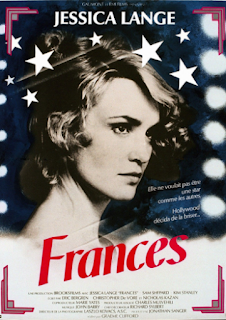The Fugitive Kind (1960)
In 1940, Tennesse Williams wrote a play called Battle of Angels. After Tallulah Bankhead turned down the leading role, the play premiered on Broadway with Miriam Hopkins instead. It was a spectacular failure, both critical and financial. About fifteen years later, after having become one of the most successful and acclaimed playwrights, Williams rewrote his earlier play into Orpheus Descending but once again his work did not result into a success. Apparently, telling this story was a passion project for Williams and the lack of appreciation for it caused him great frustration. He adapted his play into the film The Fugitive Kind in 1960: but even the film, in spite of the author's popularity and the presence of three Academy Award winners in the cast, was a failure, earning not-so-great reviews and not a lot of money. Nowadays, the movie is rarely remembered and that's a pity. Sure, just like the play itself, it's not quite perfect: for example, the character development of Vee Talbot (played in the film by a solid, quite touching Maureen Stapleton) isn't fully convincing with her final scene being a little too sudden and a little bit puzzling. But those are minor quibbles, and in spite of the criticism The Fugitive Kind is an excellent production, a film that is compelling, thought-provoking and thematically rich.
The main character of the story is Valentine "Snakeskin" Xavier (Marlon Brando), a guitar-playing drifter who flees New Orleans to avoid arrest. Genuinely determined to turn over a new leaf and live a quiet, steady life, Val moves to a small town and finds work in a five-and-dime owned by an embittered, older woman, Lady Torrance (Anna Magnani). Lady's husband, Jabe (an effectively vicious Victor Jory), is dying and it soon becomes clear that if any love ever existed between the two it is long gone. Val slowly grows closer to the world-weary but strong-willed Lady; and the woman, who has long-buried demons inside her, becomes attracted to this mysterious young man who seems to be unwilling to fit in the sterile mediocrity of her narrow-minded fellow citizens. The two soon embark in a clandestine love affair that will inevitably lead to tragedy.
It's not easy to see the reasons why the movie ended up being so coldly received. Perhaps, after Suddenly, Last Summer, audiences expected again a torbid, scandalous story instead of a quiet, slow-paced character study and social commentary that only becomes truly explosive towards the end. Regardless of its reception, the film stands as an incredibly powerful observation and reflection on small-town communities, their mob mentality and their stubborn refusal to accept anyone who does not conform to the rules. Williams is not interested in sending home a simple, straight-forward message or to present reality in a stylized, stereotypical way to convey his themes more easily: he effectively transports into the world he wants to portray, never shying away from the physical and psychological violence of the story. His brilliant work as a screenwriter and Sidney Lumet's expert direction give the movie an incredibly strong sense of place: you can almost feel the heat of the land, as sterile and unforgiving as the heart of the people who live in it, and throughout the whole movie there is an air of delicate balance tied with an underlying sense of dread, as if the slightest variation of this balance could become deadly. Williams' screenplay honestly, even brutally, presents the hypocrisy and suffocatingly judgemental mindset of the townspeople that does not give space to empathy and feeling: only in isolated moments, such as the scene in the graveyard or the one at Lady's old house, the main characters in the movie can truly feel free to express themselves and Lumet's direction grants them a feeling of intimacy that works beautifully in tandem with Williams' delicate words. Anther incredibly admirable quality is Williams' ability to subtly present the topic of the unjustified violence against people of color even though it is not the central theme of the movie - it's only occasionally addressed through the words of various characters, but these few moments come together beautifully by the end creating a surprisingly powerful depiction of this relevant topic despite it not being the prime focus (Three Billboards Outside Ebbing, Missouri, take notes).
The movie's main performances polarized the critics and the audience when it was released, but they are all perfectly fitting to the characters and the writing. Apparently, neither Williams nor Brando were satisfied with the latter's performance, with Williams accusing Brando of not understanding the character and Brando accusing Williams of having forced him to replicate his former performance as Stanley Kowalski. But Brando's portrayal of Val is actually great and completely different from his work as Stanley: it's a reserved, sensitive and quietly melancholic turn that finds the sheer, inspiring beauty in the character's quest for freedom against any rule society imposes on him. And he finds a great match in Magnani, a marvelous actress of unparalleled intensity and viscerality. The actress already portrayed a character written by Williams in The Rose Tattoo, for which she deservedly won the Oscar, and she is just as good here: she brings the grandeur required by a tragic Williams role without ever turning to cheap theatrics and hystrionics but genuinely inhabiting her character's loneliness, resentment and hunger for life. Brando and Magnani did not have a great working relationship: she had learned her lines phonetically and found it hard to understand Brando's mumbled way of speech, and he had explicitly stated he found Magnani unattractive. But their chemistry on screen is magic: in the beautifully shot scenes in the store at night, with sparse glimmers of moonlight illuminating their faces, the two actors movingly portray the connection between two lost souls looking for solace and understanding. There's another great performance in the film coming from Joanne Woodward as Carole Cutrere, a disillusioned girl who has long given up the fight against the townspeople' prejudice and has become an alcoholic outcast. Woodward is over-the-top in the role, sometimes amusingly and someting annoyingly and this is perfectly consistent with the character, who is constantly trying to be as off-putting as she can. But she is an intelligent actress who knows just the right moment to pull back and tone it down, and in those few moments of subtlety she is heartbreaking at revealing the damaged girl inside Carol and her longing for an escape. It's an exceptionally well-conceived role and Woodward brings incredible pathos to its arc. And it's in her beautiful soliloquy at the end that lies the meaning of The Fugitive Kind, a hymn to the people who stand up against society, whether they're fighting for a change or simply claiming their own freedom. It's a film that has the power to inspire you.
95/100




My memory faded away with this one. But I remember not being very impressed. Certainly I'll give it another watch.
RispondiEliminaDid you watch the version with Vanessa Redgrave in Magnani's role? She seems such an odd replacement.
I hope you'll like it more on a rewatch. I found it truly splendid and I loved the performances (especially Woodward's).
EliminaI haven't seen the remake either. I adore Redgrave both on and off screen, but she would seem to me a bit miscast in the role of Lady. I'd see more easily in Carol's role.
*I'd see her
EliminaHaven't seen this one, though my recent history with Tennesse Williams has been pretty hit and miss.
RispondiEliminaWhat did you like and what did you not? I’m generally quite fond of him.
EliminaSorry.. You'll have have to forgive me in that I incorrectly remembered Williams as the writer of "August Osage County". That was the one play adaptation of his I thought I disliked, as I saw "A Streetcar Named Desire" and "Cat on a Hot Tin Roof" a long time ago and enjoyed both.
EliminaAlso, not to complain or anything, but are there any films from the 21st century coming up soon?
EliminaI’m glad you liked A Streetcar Named Desire and Cat on a Hot Tin Roof. I loved them both.
EliminaTo answer your second question, yes. I have been meaning to watch You Were Never Really Here, Two Lovers and others 21st century movies soon.